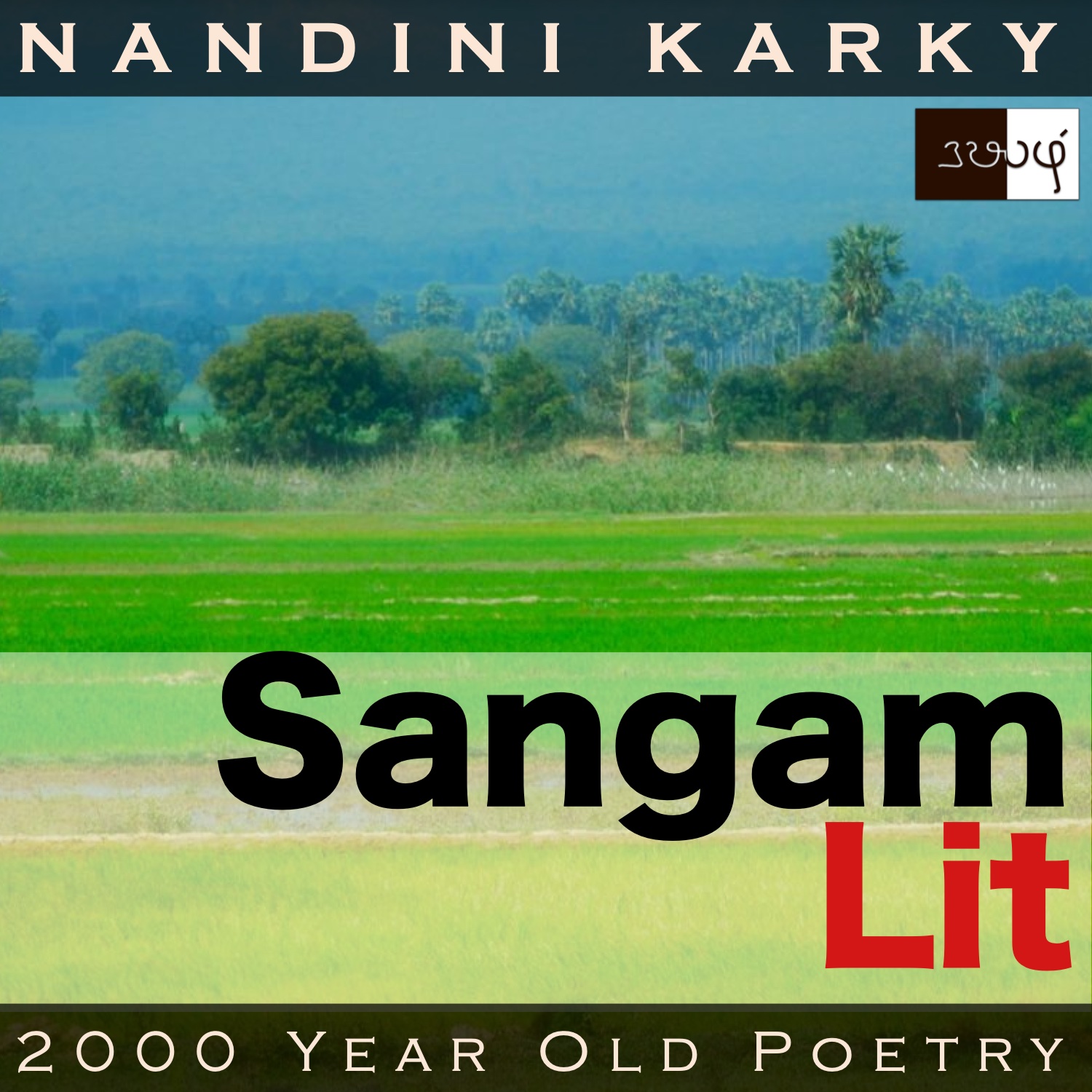Podcast: Play in new window | Download
Subscribe: Apple Podcasts | Spotify | Amazon Music | Android | iHeartRadio | TuneIn | RSS | More

In this episode, we perceive facets of mountain farming, as depicted in Sangam Literary work, Kurunthogai 100, penned by Kabilar. Set in the mountains of ‘Kurinji’, the verse speaks in the voice of the man to his friend, describing the land of the lady, who had won his heart.
அருவிப் பரப்பின் ஐவனம் வித்திப்
பரு இலைக் குளவியொடு பசு மரல் கட்கும்
காந்தள்அம் சிலம்பில் சிறுகுடி பசித்தென,
கடுங் கண் வேழத்துக் கோடு நொடுத்து உண்ணும்
வல்வில் ஓரி கொல்லிக் குடவரைப்
பாவையின் மடவந்தனளே-
மணத்தற்கு அரிய, பணைப் பெருந் தோளே.
‘Farming practices and fierce qualities’ come to the fore in this one! The opening words ‘அருவிப் பரப்பின்’ meaning ‘the land watered by the falls’ talk about the irrigation source in a mountain farm. ‘ஐவனம்’ meaning ‘mountain rice’ reveals the crop that was being cultivated there. Other plants like ‘குளவி’ meaning ‘wild jasmine’ and ‘மரல்’ meaning ‘hemp’ also make an appearance here. Complementing the flora, we see fauna in ‘கடுங் கண் வேழத்துக் கோடு’ meaning ‘the tusk of the stern-eyed elephant’. An oft-encountered historical place can be seen in ‘வல்வில் ஓரி கொல்லி’ meaning ‘Kolli hills of the marksman Ori’. Ending with the words ‘பணைப் பெருந்தோளே’ meaning ‘bamboo-like thick arms’, the verse welcomes us to this mountain land.
Crops, plants and tusks seem to hold within a significant tale! The context reveals that the man had met a lady in the mountains and fallen in love with her. One day, seeing the man in an anxious state, his friend asks the reason for his disturbance. To him, the man says, “Planting mountain rice in the land watered by cascades, they weed out thick-leaved wild jasmine and green hemp that grows amidst the crops, in that hamlet hemmed by a fence of flame-lilies. When hungry, those in that hamlet, sell the tusk of a harsh-eyed male elephant. Akin to the goddess statue on the western front of the Kolli hills, ruled by the renowned marksmen Ori, is that naive maiden, whose bamboo-like thick arms I’m unable to embrace.” With these words, the man narrates to his friend in a hidden manner, the difficulties in meeting with the lady he loves.
Time to explore the nuances in this verse! The man first talks about a mountain land, watered by the cascades, vividly capturing the rich, moist nature of the soil. So welcoming to life is this soil, that not only the planted mountain rice, but even wild jasmine and hemp pops up between crops of rice. After narrating how the people who live in that hamlet, surrounded by a fence of flame-lilies, weed out these jasmine and hemp plants, the man then turns to talk about what they do, when they find themselves hungry. Now the question may arise, why should they find themselves hungry in such a fertile land. To answer that, this is the mountains and taming the land to farm is a difficult task indeed. So, when they do not have the food they need, these mountain folk allay their hunger by selling the tusk of a stern-eyed elephant, the man says. This has been mentioned to describe the strength and fearlessness of the mountain tribe in overcoming a powerful elephant.
Turning from the description of the land, the man then talks about the famous ruler Ori and his domain of ‘Kolli hills’. Naturally, his attention travels to the statue of the goddess seen on the western side of these hills and he places the lady’s beauty in parallel to that of this goddess. He ends with an angst-filled statement about how the lady’s thick bamboo-like arms seemed unreachable to him. In effect, the man is conveying the extraordinary beauty of the lady, who has won his heart, as well as the difficulties in attaining her good company, by narrating the nature of her kith and kin. Strength of the protectors and the beauty of the protected leaves the man torn between reaching out and staying away. Perhaps, through this expression, the man will find a wise way to the lady he loves!




This podcast is the best one that I have ever heard so far. one suggestion from my side will be..if it is possible can you please add glossary of the words in the poem in the description.
Thank you for your warm words of appreciation. A textual glossary of some of the significant words in the verse can be found in the first paragraph after the Tamil lines. To search for other words, please consult online dictionaries such as Karefo’s Chol – https://karky.in/karefo/labs/chol/chol.html. Thanks again for your thoughts and inputs.